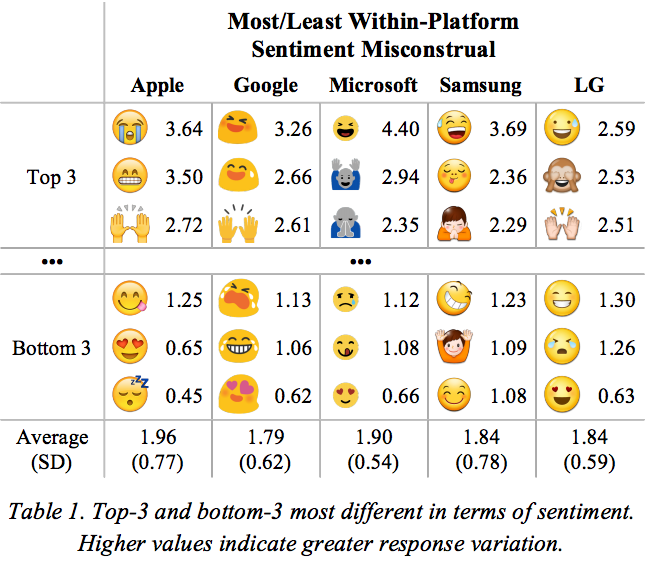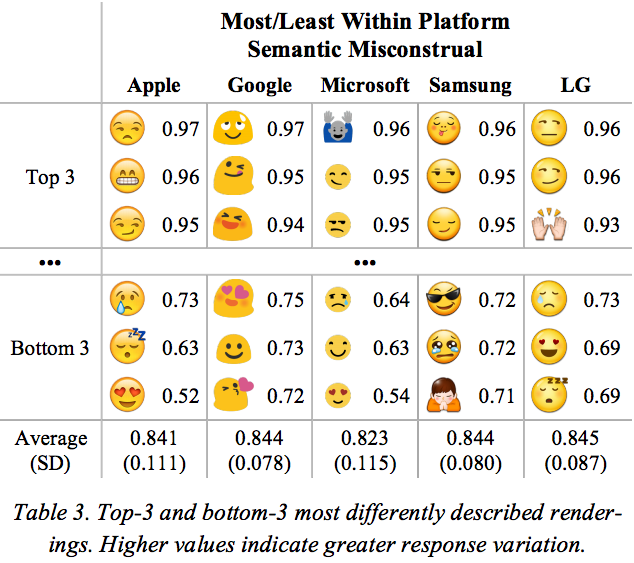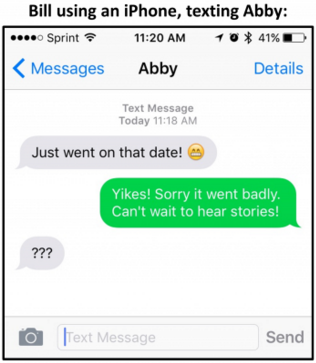The Most Commonly Misused Emojis, According to Science
By:
Emojis may constitute a highly advanced form of language — but humans are apparently still not fluent speakers.
According to researchers from the University of Minnesota, the meanings of several proprietary emoji faces across major tech providers' chat platforms are routinely misconstrued by users.
In a survey, researchers asked people to rate emojis for both perceived sentiment and description. When it came to sentiment, people offered differing interpretations on a scale of very positive to very negative (+5 to -5, respectively). In other words, people thought the top-rated emojis were either, happy, sad, angry, or somewhere in between.
Here's a chart tracking the average point difference in perceived sentiment:
 Grouplens - grouplens.org
Grouplens - grouplens.org
Asked to describe the emoji's sentiment, respondents ran into even more trouble, and had difficulty determining a single meaning for one face. Take Apple's "unamused face," which is at the top of the Apple chart below. According to researchers, the responses varied in interpretation from "'disappointment,' 'depressing,' 'unimpressed,' and 'suspicious.'"
 Grouplens - grouplens.org
Grouplens - grouplens.org
The implications of the study aren't necessarily drastic, unless you rely solely on emojis to communicate. Differing interpretations "can cause people to misinterpret the emotion and the meaning of emoji-based communication, in some cases quite significantly," the researchers concluded.
If you can't picture how this might play out, here's an example from someone named Bill texting another person named Abby, per the researchers:
 http://grouplens.org/blog/investigating-the-potential-for-miscommunication-using-emoji/ - grouplens.org
http://grouplens.org/blog/investigating-the-potential-for-miscommunication-using-emoji/ - grouplens.org
Indeed, Bill. Indeed.
